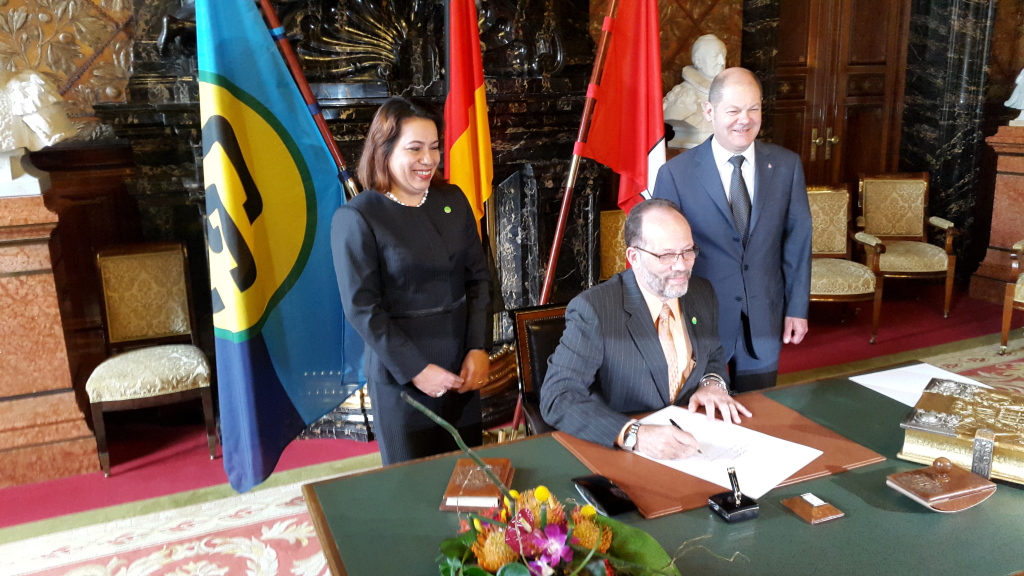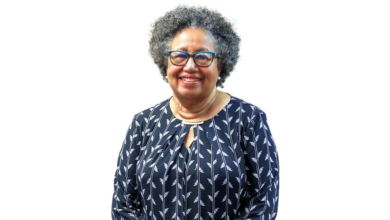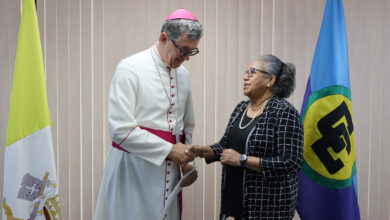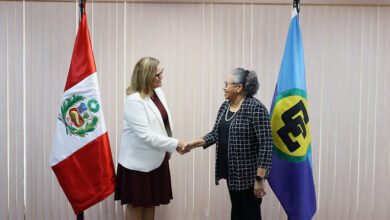At the Conference of Caribbean Community (CARICOM) Foreign Ministers and Germany, held on 2-3 March 2015, in Berlin, representatives renewed their commitment to further strengthen existing fields of cooperation and to explore new areas for interaction.
The Conference, held at the invitation of the government of Germany, “noted with satisfaction the steady and continuous progress in… relations”, between Germany and the Region.
“We value the role of CARICOM as a regional partner and coordinator of the German-Caribbean cooperation”, according to the Communiqué issued at the Conference’s conclusion.
Germany has ongoing development cooperation with the Caribbean in the fields of energy, the environment, health and regional economic integration. And while this cooperation, particularly in the fields of energy and environment, focuses on the protection of global goods, its equally important contribution to sustainable economic development of the Caribbean region was acknowledged. In the latter context, however, CARICOM ministers expressed their concern about the narrow criterion of GDP per capita as a basis for determining the level of development assistance – “GDP per capita criterion does not fully reflect the specific vulnerabilities of small island developing states”, they pointed out.
The German government, while maintaining that GDP per capita can provide an easily measurable and useful eligibility criterion for access to certain grants and concessional funding instruments, indicated its support for a multidimensional poverty measurement in the context of the post-2015 agenda.
The representatives also discussed the political situation in different parts of the world and in their own regions. In the exchange of views, the two sides, inter alia, agreed on the important role of the EU-LAC Foundation to the bi-regional dialogue. They agreed also, on the need to reform the United Nations Security Council so as to better reflect current geopolitical realities.
“We strive for a more representative, effective and transparent Security Council… ten years after the Heads of State and Government in 2005 called for an “early reform of the Security Council”, it is necessary to finally achieve tangible results”, they stated.
Expressing their intention to work together to achieve concrete outcomes, representatives also acknowledged that the Arms Trade Treaty was “a major contribution to international and regional peace and security and a necessary tool for regulating the global arms trade and stemming the disastrous and tragic consequences of the illicit trade in arms”. In this regard, advocacy for Trinidad and Tobago’s hosting the Secretariat of the United Nations Arms Trade Treaty was made.
“…we commit to working together through the sharing of information and best practices to ensure the effective implementation of this landmark treaty”, they reiterated.
Other issues related to the post-2015 agenda for sustainable development including; climate change; financing for development; development cooperation; renewable energy and energy efficiency also received the attention of the conference.
According to the Communiqué, representatives were “convinced that the conference will further enhance the long and lasting cooperation…” [and] agreed to continue the fruitful exchange at a high level, on a regular basis.
CARICOM’s Community Strategic Plan 2015-2019 identifies the deepening of foreign policy co-ordination as one of eleven top priorities.






